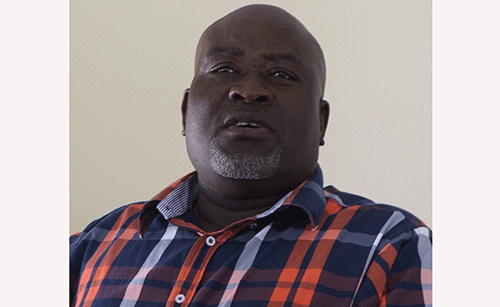Various stakeholders met yesterday with the aim of finding the best options for Namibia to provide free Wi-Fi at public facilities as per the motion, which was moved in the National Assembly earlier this year.
Swapo member of parliament Modestus Amutse earlier this year moved a motion where he motivated that offering of free Wi-Fi by various stakeholders will guarantee that individuals make informed decisions in the process of expressing themselves and imparting information.
He argued once a free Wi-Fi framework is agreed upon and implemented, people who are vulnerable or marginalised will have equal rights to access information to build their capacities in their different spheres of life.
“The year 2030 upon which we base our vision for broad-base industrialisation and economic transformation is around the corner, and investing in a framework for free Wi-Fi is a step in the right direction, especially for our youth population. It will also contribute immensely to narrowing the gaps between the rich and poor when it comes to accessing information,” Amutse motivated.
Statistics show that about 1.28 million people in Namibia used the internet between 2019/20, and the number continued to improve over time due to increased network coverage across the country.
The motion was then referred to the Parliamentary Standing Committee on ICT, which Amutse chairs.
Amutse yesterday told delegates that it is their responsibility to ensure they come up with an implementable way forward that would eventually create an environment where the youth from underprivileged families can access information using free Wi-Fi.
“I am confident that if we have a will, Namibia, as a country, can start gradually to identify critical places like schools, public transport, tertiary institutions and public places, where free Wi-Fi can be successfully provided through private- partnership,” he is hopeful.
He called on public and private institutions, public transport and educational institutions to do their part in ensuring a successful implementation of the motion by providing free Wi-Fi.
Amutse promised the ICT committee will continue with extensive engagement with transport companies, municipalities, business representatives, student organisations and civil societies to promote and encourage the introduction of free Wi-Fi at facilities of common interest.
“It will not be government alone to steer the free Wi-Fi activity, but it is expected that we all exercise our social responsibility towards this inevitable subject matter for the good of our people and country. It does not do us good when we praise other nations for making achievements while we neglect our own intellect to make similar or more achievements for our people,” he noted.
Director for ICT development Linda Aipinge highlighted challenges currently hampering development in the ICT sector.
She said unlike other sectors such as works and transport, energy and water, the ICT sector is not privileged to funding or budget appropriation for capital expenditures.
Another challenge she mentioned is insufficient funding for policy development and/or consultancy.
According to Aipinge, the advent of Covid-19 taught the information and communication ministry that access to quality broadband and ICT services is no longer a luxury but a basic need.
“More than ever before, the demand for data and connectivity to access online services, work and study went up exponentially. ICT became the backbone and machinery that enabled all other sectors of the economy to thrive. It is time to reconsider our investment in ICT infrastructure, services and cybersecurity to secure our digital assets,” she recommended.
– anakale@nepc.com.na


